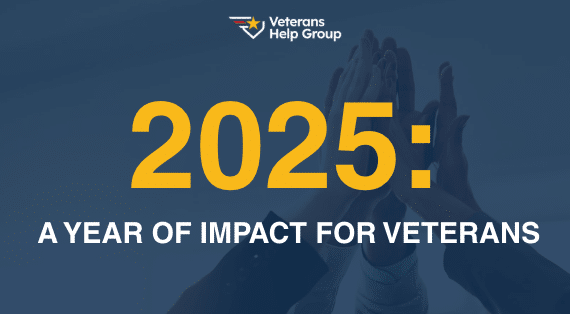
Table Of Contents
VA Disability Rating for Diabetes
You may not think of diabetes as a service-connected condition, but the VA recognizes that the condition may have been triggered during military service. In fact, diabetes is presumed service-connected for some veterans. Here’s what you need to know about diabetes, when it may be service-connected, how the VA rates the condition, and when you may receive VA disability benefits for diabetes.
Diabetes Mellitus
Diabetes mellitus includes a group of diabetic conditions: Type I diabetes, Type II diabetes, and gestational diabetes. Type II diabetes is by far the most common, impacting tens of millions of Americans. Though diabetes is a serious medical condition and can even be life-threatening, many people are slow to recognize the condition.
Some common symptoms include:
- Unexplained weight loss
- Feeling tired
- Slow-healing sores
- Increased thirst
- Increased hunger
- Frequent urination
- Numbness or tingling in extremities
- Blurred vision
- Yeast infections or UTIs in women
Diabetes that is not effectively managed can have very serious impacts, including cardiac problems, kidney failure, neuropathy and peripheral artery disease. In serious cases, amputation may be required.
Symptoms of both Type I diabetes and gestational diabetes are similar. However, Type I diabetes often has a more sudden and dramatic onset. Gestational diabetes occurs during pregnancy and is usually time-limited.
Another type of diabetes, diabetes insipidus, also appears in the VA disability rating schedules. Diabetes insipidus is quite rare. Though the terminology is similar, these conditions are actually unrelated, with differing causes and symptoms.
Proving Service Connection For Diabetes
Type II diabetes is presumed service-connected for veterans who were exposed to Agent Orange during their military service.
If you have Type I diabetes or have Type II diabetes without a presumed service connection, it will be up to you to demonstrate that your condition is likely service-connected. The evidence required to establish service connection will differ depending on your circumstances, but may include evidence of exposures tied to diabetes, date of onset of symptoms compared with your military service dates and other evidence. An experienced VA disability benefits advocate can help you determine what documentation will be most effective in your case.
VA Disability Ratings For Diabetes
VA diabetes compensation is determined by the veteran’s disability rating. Because diabetes may range from a condition controlled with diet and exercise to a seriously debilitating condition requiring amputation or organ transplant, the possible VA disability ratings span a wide range.
Possible ratings for diabetes alone are:
- A 10% VA rating is assigned when diabetes is controlled by diet alone
- A 20% VA rating is assigned when the condition requires a restricted diet along with daily insulin injections or medication
- A 40% VA rating is assigned when the condition requires restricted diet, daily injections of insulin and regulation of activities
- A 60% VA rating is assigned if the veteran meets all of the criteria for a 40% rating and also requires hospitalization once or twice a year or twice-monthly doctor visits due to episodes of ketoacidosis or hypoglycemic, plus complications that would not be compensable if separately evaluated
- A 100% VA rating is assigned if the veteran meets all of the qualifications for a 60% rating, but requires hospitalization at least three times a year or weekly doctor visits, plus either progressive loss of weight and strength or complications that would be compensable if separately evaluated
Combined VA Disability Ratings for Diabetes
You may have noticed that at the 60% level, the assessment considers only complications that would not be separately compensable, while the 100% rating rolls in compensable complications. That’s because the rating schedule directs the VA to consider complications separately under the appropriate body system unless they are part of the criteria used to support a 100% rating.
Conditions that May Be Secondary to Diabetes
There are a wide range of possible complications of diabetes. If you have service-connected diabetes and you are experiencing other medical conditions, you should check with your doctor to determine whether those conditions and symptoms may be related to diabetes. Ensuring that the VA considers all service-connected and secondary-connected conditions can make a significant difference in your VA disability rating.
Some conditions commonly associated with diabetes include:
- High blood pressure, which in turn can increase complications of diabetes
- Strokes and other cardiac issues
- Kidney disease and/or kidney failure
- Diabetic retinopathy, which can cause blindness
- Neuropathy
- Peripheral artery disease
Here’s an example of the difference a secondary condition can make in your VA rating for diabetes.
Say you are assigned a 60% disability rating for diabetes. In 2025, your base monthly monetary benefit will be $1,395.93. Now, imagine that you also have peripheral artery disease. There are two different ways the VA may consider those symptoms. The peripheral artery disease may be assigned its own rating, which would then be combined with the diabetes rating for an overall rating. Say the peripheral artery disease is rated at 40%.
The VA will apply that 40% rating to the 40% “left over” after your 60% rating for diabetes. .40 x .40 is .16. That’s added to your 60% rating for a total of 76%. However, VA disability ratings are only assigned in increments of 10, so that would be rounded to 80%. At the 80% rating, your monthly benefits would jump to $2,044.89.
Alternatively, the VA may consider the peripheral artery disease as a compensable condition supporting a 100% disability rating. If the 100% rating is assigned, your 2025 monthly monetary benefit would be $3,831.30.
Get the VA Disability Rating for Diabetes You Deserve
If you’re preparing to file a Type 2 diabetes VA claim or a claim for another type of service-connected diabetes, we can help. Our advocates have extensive experience with all stages of the VA claims and appeals processes, so if your claim has been denied or you’ve been assigned a disability rating that seems too low, we can help with that, too.
The first step is gathering information from a reliable source. You can schedule a free consultation right now by calling 855-855-8992 or filling out our contact form here.
Learn More About VA Disability Below:

A Year of Service and Community Engagement – Veterans Help Group
A Year of Service and Community Engagement - Veterans Help Group It has been a busy year at...

Permanent and Total VA Disability Ratings for PTSD
Permanent and Total VA Disability Ratings for PTSD What is Post Traumatic Stress Disorder (PTSD)?...

2026 v 2025 VA Disability Rates and Payment Schedule
2026 v 2025 VA Disability Rates and Payment Schedule As of December 1, 2025, new VA disability...





